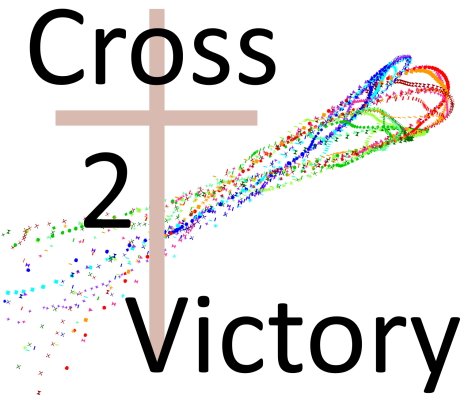Salvation Apocalyptic, Symbolic or Spiritual
Apocalyptic forms of repentance:
True repentance is always from the heart, and spiritual in nature. Anything else can only be symbolic, but God uses symbolism, typology and apocalypse at certain times in real world historical events to reveal his work of Salvation to the nations.
The book of Revelation is called, “The revelation of Jesus Christ”, (Rev 1v1). A revelation is an ‘unveiling’ or ‘apocalypse’, meaning there is a real physical tangible presence.
The name Jesus means ‘Salvation’. So the apocalypse is a real physical manifestation of God’s work of salvation put on display to the world.
Jesus has already been revealed once in history. His first coming was seen by some, but his second coming will be seen by all.
Old Testament Israel presented symbolic and typological manifestations of God’s work of salvation.
Isaiah said, “Here am I, and the children the Lord has given me. We are signs and symbols in Israel from the Lord Almighty, who dwells on Mount Zion.” - Isaiah 8v18.
Israel revealed God’s work symbolically, but the true work of God is Spiritual.
So Paul said, “Not all Israel is Israel.”
The spiritual work continues in his people today, and therefore is mostly unseen. The Kingdom of God is within us.
The work of Salvation is life long and begins at birth, intensifies with baptism in the Holy Spirit, and is completed with death and resurrection. We follow Jesus in this journey of salvation.
What Jesus completed now continues in us. But there is also a future aspect to God’s on-going work of salvation with a special unveiling or apocalypse coming in the last days.
How does, or how will this last days unveiling take place? There are current and future aspects to consider.
Of course, God’s work of Salvation always begins with a form of birth which comes in spirit and truth by faith and repentance, but at certain times God reveals his plans and work symbolically, or apocalyptically.
On the smaller scale or personal level, circumcision or baptism are signs of repentance designed for an individuals or families to express their faith in which the removal of sin is demonstrated ceremonially by symbolic cutting or washing.
But larger scale apocalyptic moments of birth bring more dramatic signs of repentance to a whole nation, or even the whole world. These are often less ceremonial and more judgemental.
Noah’s flood was a less ceremonial form of baptism that took place on a catastrophic global scale (1 Peter 3v20-21). In an act of judgement God cleansed the world from sin almost completely, but God’s grace was on display in Noah and his family.
The feast of Trumpets is large scale ceremonial apocalypse of sorts for the whole nation of Israel to keep annually. Trumpets sound all around the country on the 1st of Tishri. A time of repentance begins, and continues during the 10 days of awe leading up to the Day of Atonement.
Traditionally this trumpet call to repentance had a real element of surprise, and so the Feast of Trumpets was also known as ‘the day no-one knows’.
This was due to the Jewish calendar system which required a credible sighting of the new moon by two or more witnesses to announce the first day of a new month.
The feast of Trumpets is the only festival that begins on the first day of the month. This portrays the element of surprise that is seen in other large scale apocalyptic moments.
Whether ceremonial or not, large scale apocalyptic times of repentance should get us serving God more whole heartedly, in more powerful ways as a sign of the real inner work of spiritual regeneration.
The apocalyptic journey of the last days can be viewed as a God given opportunity to express our faith in special outwardly visible ways like God’s people did in Old Testament times, and God also promises to reveal his power in us.
Apocalypse and Birth
The work of Salvation begins at birth, so when God reveals his work in symbolic apocalyptic ways, it begins with birth pains. There is calamity and escape. This relates to repentance.
In Revelation 12 both the woman and child escape the dragon through a storm of falling stars, surviving a war in heaven and a river spewed out like a flood.
In Scripture floods often relate to war and calamity, but by God’s intervention a miraculous escape transforms the experience into a baptism, and brings great praise as a new journey begins.
Baby Jesus escaped King Herod and the slaughter of the infants, just as baby Moses escaped Pharaoh. Moses was placed in a little “ark” on the Nile River, resembling Noah’s ark.
Today I am urging people to be alert to the trumpets of war, and the apocalyptic journey described in prophecy as the world may be approaching a symbolic but earth shaking moment of birth.
The many signs that we have makes this message even more urgent.
The apocalyptic or symbolic aspect of birth need not be feared. It comes with divine acts of grace and mercy. God promises a good escape, providing his people with the means and forewarning needed to find safety, and to care for each other.
The escape brings great praise as the sheer magnitude of this salvation is realised as seen in Revelation 12 and on the day of Pentecost.


